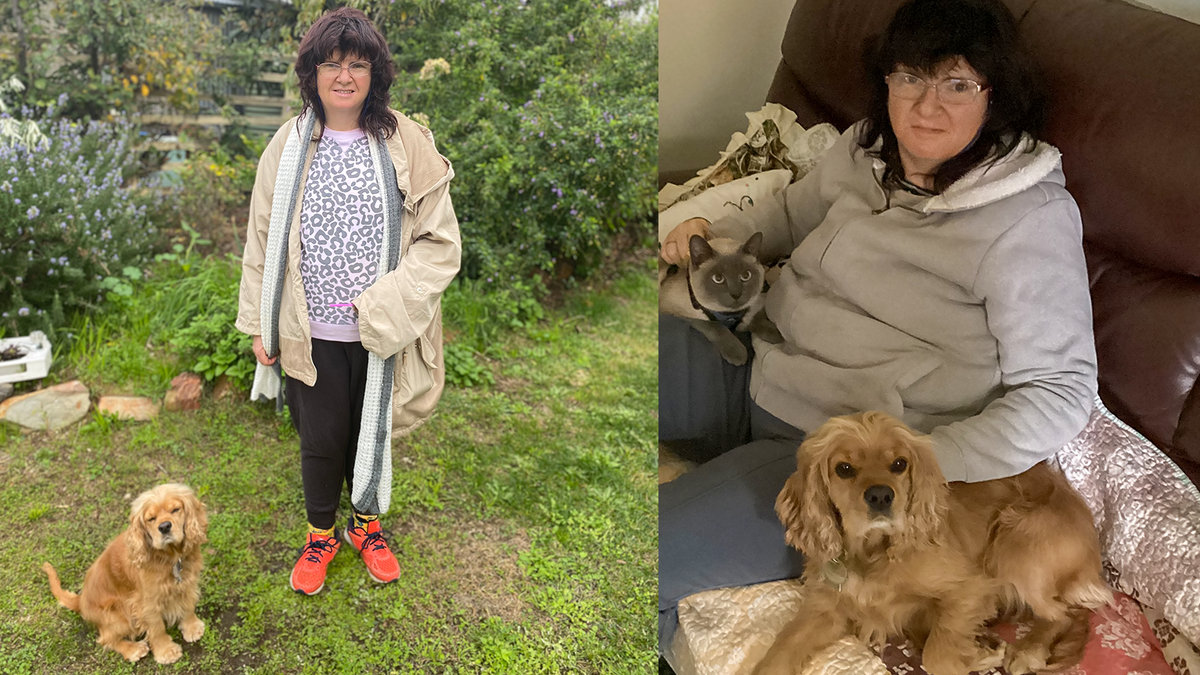Embarking on becoming an assistance dog
InLife client Melinda Hewitt's dog Kiki could be among the first assistance dogs to work with someone with Prader-Willi Syndrome in Australia.
In exciting news for InLife client Melinda Hewitt, her 5-year-old dog, Kiki, is training to become her assistance dog.
Melinda has Prader-Willi Syndrome (PWS), a rare and complex genetic disorder.
It’s hoped Kiki will support Melinda by recognising certain actions and barking to alert others when support is needed.
Melinda describes Kiki as a “spoilt” Cockalier (cross between a Cavalier King Charles Spaniel and Cocker Spaniel). Melinda also has a cat named Wimski.
From family pooch to trained professional
In January, Maree saw someone looking to rehome Kiki in the local buy, swap, sell group. She then spotted an ad in the paper about dog training.
“A lot of it is teaching Melinda too, like only giving Kiki one treat, because she assumes Kiki is hungry as well,” she says.
Maree says the training is going really well, and it’s also teaching Melinda to speak up and talk with authority.
She added that Melinda’s team members need confidence, routine and understanding.
There’s still a few hoops to jump through before Kiki is officially qualified, including navigating a supermarket and shopping centre.
Melinda has always been fond of animals, and grew up with miniature ponies.
Maree says miniature ponies are wonderful for kids with disabilities, because you don’t need much land.
“Animals have always been a big part of Melinda’s life,” Maree says.
“She’ll spy a mother that’s given up a lamb and bring it home and bottle feed it, she’s had a lot of success with it.”
What is Prader-Willi Syndrome?
Prader-Willi Syndrome (PWS) is a rare and complex genetic disorder that affects Chromosome 15. About one in 15,000 babies are born with PWS.
Maree Hewitt says many people aren’t even aware they have PWS, because testing has only been available since 1982. Melinda wasn’t diagnosed until she was an adult.
People with PWS commonly experience a hunger that can never be satisfied. Like being ‘hangry’ (or irritable from hunger) all the time, they may feel anxious, exhausted, angry and frustrated.
Maree explains people with PWS may plan their whole life around food, and think about what they’re eating tomorrow before they’ve even eaten a meal.
May is PWS awareness month, and everyone is encouraged to wear orange this Friday, 27 May.
As for what Maree wants everyone to be more aware of for PWS awareness month, she says it’s likely similar to any disability.
“Have patience and understanding, but treat me [Melinda] as an adult,” she says.
For more details go to praderwilli.org.au
Read more InLife stories:
